Question And Answer
Publications
Articles, publications, books, tools and multimedia features from the U.S. Institute of Peace provide the latest news, analysis, research findings, practitioner guides and reports, all related to the conflict zones and issues that are at the center of the Institute’s work to prevent and reduce violent conflict.
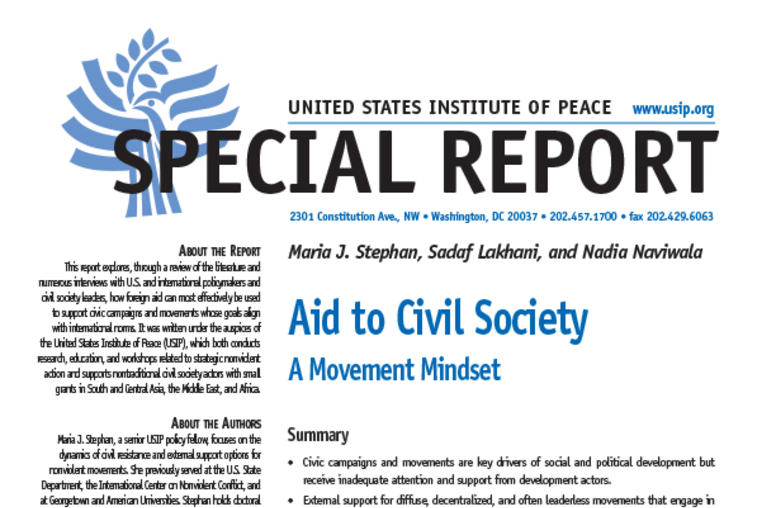
Aid to Civil Society: A Movement Mindset
Supporting local agents of nonviolent change is critical to preventing violent conflict and advancing democratic development. Civic campaigns are key drivers of social and political development, as is clear from issues-focused movements in Central and Eastern Europe, Latin America, and most recently the Middle East and North Africa. Effectively aiding civic movements that are fluid, diverse, decentralized, and often loosely organized is tricky. Drawn from a review of the literature and numero...

The 2021 India-Pakistan Ceasefire: Origins, Prospects, and Lessons Learned
The February 2021 ceasefire between India and Pakistan along the Line of Control in Kashmir has—despite occasional violations—turned into one of the longest-lasting in the countries’ 75-year shared history. Yet, as Christopher Clary writes, the ceasefire remains vulnerable to shocks from terrorist attacks, changes in leadership, and shifting regional relations. With the ceasefire approaching its third anniversary, Clary’s report examines the factors that have allowed it to succeed, signs that it may be fraying, and steps that can be taken to sustain it.
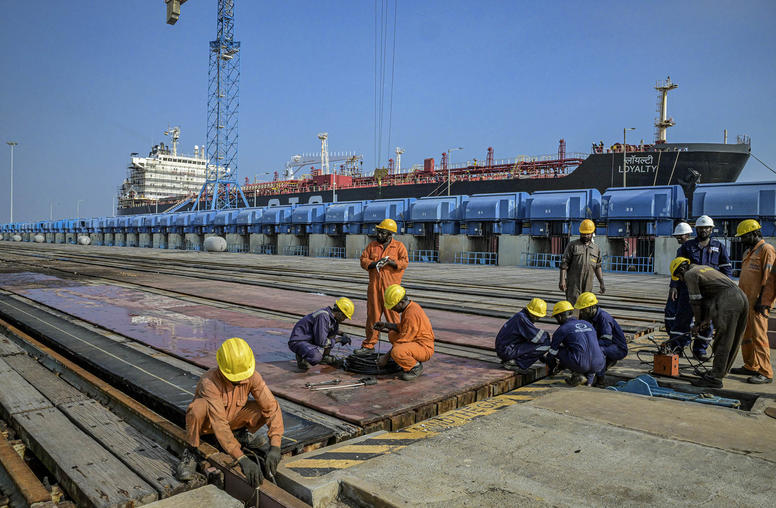
What’s the Deal with INDUS-X?
There was no shortage of splashy headlines during Indian Prime Minister’s trip to Washington last June. However, the launch of the U.S.-India Defense Accelerator Ecosystem (INDUS-X), a joint technical initiative focused on building an “innovation bridge” between the two countries, went relatively unnoticed.

As Fragile Kashmir Cease-Fire Turns Three, Here’s How to Keep it Alive
At midnight on the night of February 24-25, 2021, India and Pakistan reinstated a cease-fire that covered their security forces operating “along the Line of Control (LOC) and all other sectors” in Kashmir, the disputed territory that has been at the center of the India-Pakistan conflict since 1947. While the third anniversary of that agreement is a notable landmark in the history of India-Pakistan cease-fires, the 2021 cease-fire is fragile and needs bolstering to be maintained.
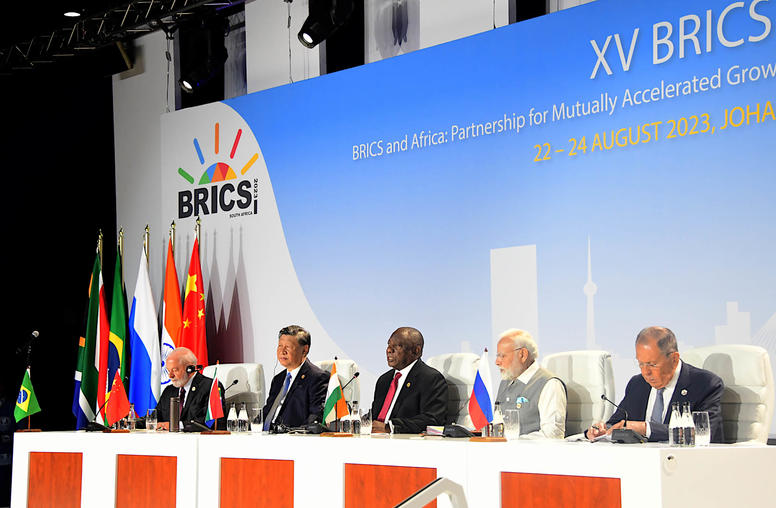
What BRICS Expansion Means for the Bloc’s Founding Members
After more than 40 countries expressed interest in joining, the question of whether BRICS would admit new members was finally answered during the group’s summit last week. Despite pre-summit reports of division over the potential expansion, leaders from the five-nation bloc announced that Saudi Arabia, Iran, Ethiopia, Egypt, Argentina and the United Arab Emirates (UAE) would join the group starting in 2024.
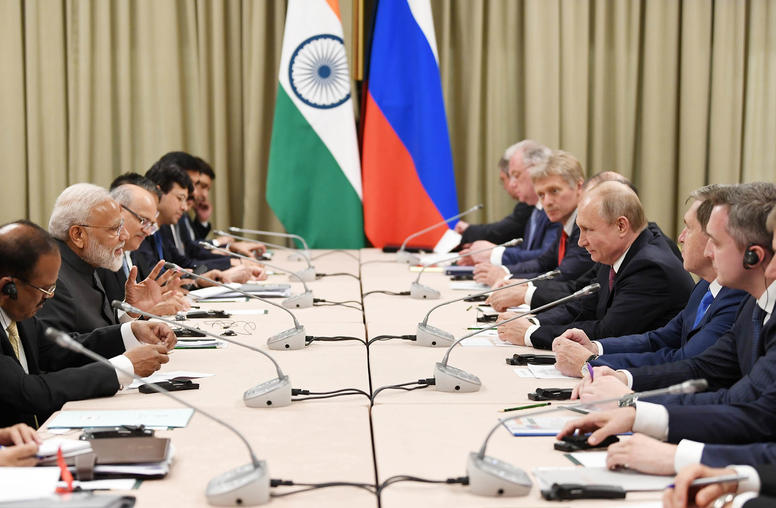
The Limitations of India and Russia’s Transactional Relationship
Since Russia’s unprovoked invasion of Ukraine in February 2022, it might seem as though ties between India and Russia have strengthened. While much of the West isolated Russia, India-Russia energy trade spiked, and India made efforts to accommodate Russia on the world stage. The two countries have also had visible public exchanges, such as a mid-January phone call between Indian Prime Minister Narendra Modi and Russian President Vladimir Putin and Indian External Affairs Minister S. Jaishankar’s trip to Moscow at the end of 2023.

Sameer Lalwani on INDUS-X and the Importance of Technology Coalitions
Technology partnerships like the U.S.-India INDUS-X “are going to be critical to the U.S. being able to defend and deter rising threats in the future, including the challenge of China,” says USIP’s Sameer Lalwani. “We need the strength of our allies in these coalitions” to maintain a technological advantage.
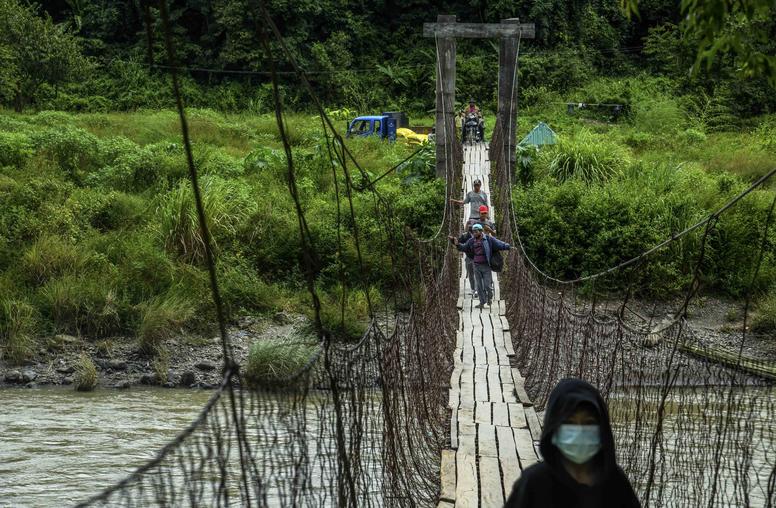
Over a Year Later, Myanmar’s Military Coup Threatens India’s National Security
The conflict in Myanmar triggered by the February 1, 2021, military coup that toppled the democratically elected government has not only become a disaster for Myanmar, but also for countries across the region. China’s response has received considerable international attention, as has the struggle within the Association of Southeast Asian Nations (ASEAN) to forge a resolution to the conflict. The impact on Myanmar’s western neighbors, however, has largely gone unexamined — with the exception of analysis of the consequences for Rohingya refugees, who are indefinitely stranded in Bangladesh with no chance of safely returning to Myanmar under this military regime.
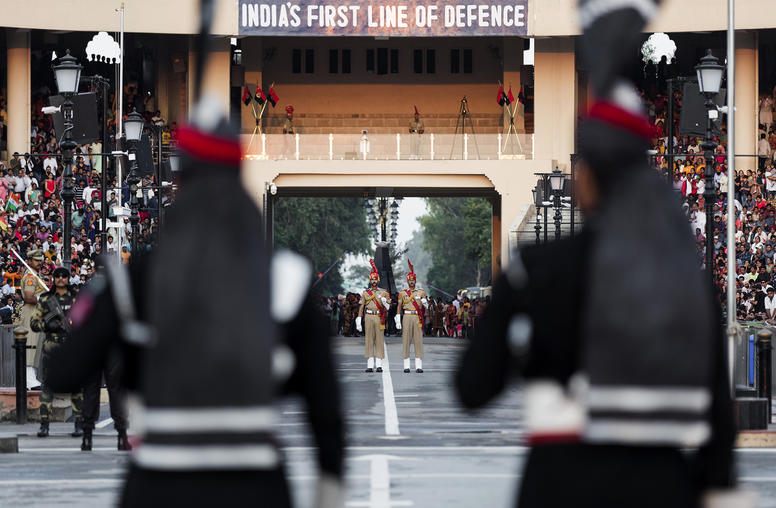
China, India and Pakistan: Tenuous Stability Risks Nuclear War
Over the past decade, long-standing disputes between the nuclear-armed states of Southern Asia have repeatedly veered into deeper hostility and violence. These regional developments reflect and reinforce new and significant geopolitical shifts, starting with the global strategic competition between China and the United States. In Southern Asia, relations between the United States and Pakistan have frayed even as U.S.-India and China-Pakistan ties have strengthened. The region now faces deepening and more multifaceted polarization. Global competition adds fuel to regional conflict and reduces options for crisis mediation.
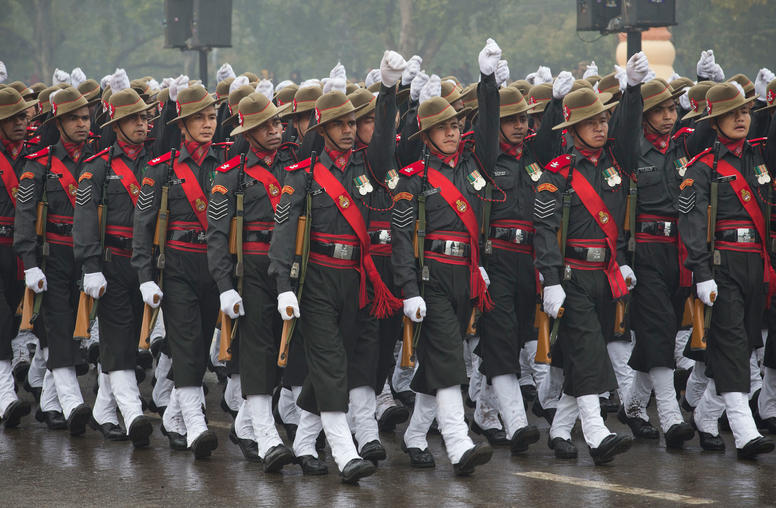
How to Deal with the Risk of Nuclear Escalation in South Asia
Two months ago, India accidentally launched a missile 75 miles into its rival Pakistan’s territory. Although many U.S. policymakers could be excused for having both eyes on the Russia-Ukraine conflict, for those pursuing stability in the Indo-Pacific, this was a reminder of the nuclear risks endemic to the region.